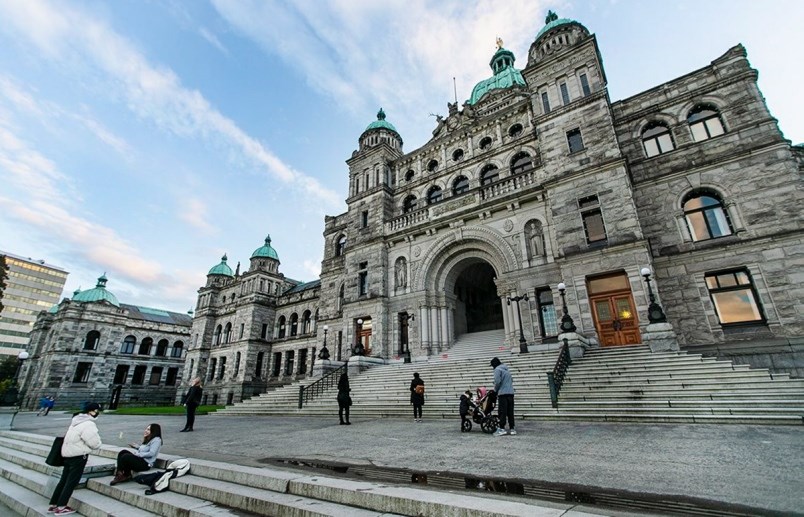With the BC NDP landslide victory now confirmed at 22 votes, step one for the robust new majority government is simple: Get the cash it promised in the election into the hands of British Columbians.
That means turning Premier David Eby’s rebate promise — aka the “Eby-bate” — into reality.
The election promise calls for a one-time rebate cheque of up to $500 for single people with a salary up to $100,000 (phasing out at $125,000), and up to $1,000 for households phasing out at $250,000. After that, the rebate turns into an income tax cut on the first $22,580 earned annually, resulting in what New Democrats say will be similar savings.
There’s much consternation inside the government about what regulatory or legal mechanisms are required to do this. And considerable effort is being made to research the issue by the “transition team” created to help ease the changeover between the Eby government and — er, well, the Eby government.
One school of thought is to just scrawl out a few cabinet orders, rejig a couple of regulations and blast the money out as quickly as possible. This falls squarely under the “get stuff done” philosophy that defined the first 22 months of the Eby premiership, where the ends justify the means and process is an inconvenient roadblock to expediency.
But the “Eby-bate” is massive. It will cost $1.8 billion just for the first phase of rebate cheques, and then another $1.3 billion annually in foregone income tax revenue.
That kind of change, involving that kind of money, deserves to be debated in the legislature.
Even if the NDP could finagle it all by cabinet order, it shouldn’t. Permanent tax cuts, affecting 90 per cent of British Columbians, ought to be detailed on the floor of the people’s house, scrutinized by MLAs and passed by a vote of the legislative assembly.
We’ll hear more about the “Eby-bate” when the premier swears in his next cabinet Nov. 18. It will likely form the centrepiece of the throne speech in the promised late fall session of the legislature as well.
“Our goal here is to make sure that this place behind me works for British Columbians, especially on the priorities that were so evident during the campaign, cost of living, the pressure that people are feeling on their monthly bills at the end of every month, feeling like they're just getting by or not even getting by, let alone getting ahead,” Eby said in a press conference a couple weeks ago, outside the legislative chamber.
If the NDP have more ideas on the affordability front, they haven’t dropped any hints.
The government’s affordability agenda the last seven years has consisted mostly of small-scale tax credits that apply only to the lowest income of British Columbians, alongside occasional rebates delivered through ICBC and BC Hydro.
The underwhelming performance on affordability was one of the factors that led to the surge of the BC Conservatives in the October election.
Conservative Leader John Rustad promised to allow British Columbians to write off up to $3,000 a month in housing costs, such as rent and mortgage, which could then result in an annual tax rebate of up to $1,600.
It wasn’t a bad idea — in fact, it would have been one of the largest tax breaks in provincial history — but Eby mocked it mercilessly for the four-year implementation timeline.
Still, why wouldn’t the NDP, having barely won re-election, look at the popular Conservative proposal and try to do something similar? Why not let people write off the single biggest expense in their lives in the form of housing?
Simple: The petty tribalism of politics, and a knee-jerk refusal by the NDP to scoff at any ideas from its opponents, no matter how much sense they might make.
Which is why a team of highly paid partisans is working behind the scenes right now to implement the “Eby-bate” and reinvent the wheel on a whole new slate of affordability policies, while ignoring the ones sitting right in front of their faces.
Rob Shaw has spent more than 16 years covering B.C. politics, now reporting for CHEK News and writing for Glacier Media. He is the co-author of the national bestselling book A Matter of Confidence, host of the weekly podcast Political Capital, and a regular guest on CBC Radio.




